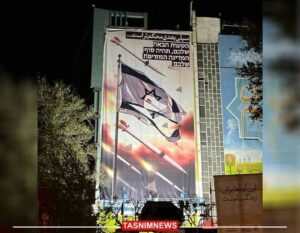By: Sarit Zehavi and Ibrahim Abu Ahmad
On June 15th, the US State Department issued a statement warning Syria and Russia against carrying out military actions against the southwest “de-escalation zone” next to the Syrian border with Israel. “The United States will take firm and appropriate measures in response to Syrian government violations in this area,” while “Russia is ..duly responsible to use its diplomatic and military influence over the Syrian government to stop attacks and compel the government to cease further military offensives.” This is the second time in a month that the US has issued this kind of message.
It is unlikely that the US is planning to send a military division to southern Syria. In order to better understand the true meaning of the above statement, one should look at the Israeli-Russian negotiations concerning Iran’s presence in Syria. “The Syrian Army must be the only force on the border with Israel,” stated Russian Foreign Minister Sergei Lavrov on May 28th. This quote and other reports indicate that negotiations between Israel and Russia concerning the future of southwest Syria are still ongoing. Yet they provide hope to Israel, showing an unprecedented Russian reservation towards Iran.
Reports of an emerging agreement regarding ending the Iranian presence in Syria were delivered after an intense month of May, which included escalations between Israel and Iran at the beginning of the month. Israel targeted Iranian military assets within Syria, while the Iranian Al Quds force attacked the northern part of the Israeli Golan. The most extensive attack was carried out by Israel while Israeli Prime Minister Netanyahu was Putin’s guest in Moscow. Syrian news reports confirm that Iranian generals were killed in these attacks.
The Syrian president, Assad, stated in an interview to Al-Alam that “the campaign takes a long time and the need for these military forces of Iran, Russia and Hezbollah will continue.” Meanwhile, Hezbollah secretary general Nasrallah declared that “Even if the entire world would unite to remove Hezbollah from Syria we would not depart unless the Syrian government will ask us.
Israel aims to restore the pre-war status quo at the Syrian border. The Syrian government’s presence at the border after the 1973 war was accompanied by 40 years of relative peace, which is Israel’s main goal. The peace was kept by the United Nations Disengagement Observer Force (UNDOF). UNDOF was established by Security Council resolution 350 (1974). UNDOF created a buffer zone between the Israeli and Syrian forces, and it was the UNDOF’s mission to supervise the disengagement of the Israeli and Syrian forces.
The current negotiations between Israel and Russia have benefited Russia as well. These negotiations reinforce Russia as the leading power in Syria, as the US has not taken the lead in shaping the future of the conflict in Syria. In this respect, the current US statement is continuing this line of holding Russia responsible for what will happen in southwest Syria, as a leading power in the region.
It looks like Russia is gaining more leverage in the competition between the two superpowers. Moreover, Russia is not keen on having a long-term Iranian presence in Syria, as it has no intention of “sharing the hunt” with Iran. The potential revenue, once Syria reaches the reconstruction phase, will hold great opportunities for Russian businesses and companies.
The second step, according to Lavrov, is to take all foreign forces out of Syria, implying that the American forces in Tanaf border crossing with Iraq would be included in this ban. However, the American presence there prevents the Iranians from creating a ground corridor from Tehran to Beirut. Israel, for its part, views Lavrov’s statement as a concession following its demand that all Iranian forces will leave Syria.
However, Iran has no intention of leaving Syria, and will make it difficult for such agreements to be enforced. To maintain its military stronghold in Syria, some reports suggest that Iran has been cooperating with the Syrian government in providing the new ID cards issued by the Syrian government to Shiite foreign soldiers. Thus, as Syria attempts to create a demographic change in Syria, Iran attempts to achieve a permanent stronghold for its proxies there. Reports in Syria suggest that Assad has already granted ID’s to 2 million Shiites since the rule was put in place just two months ago. This is a meaningful number because today Syria has about 18 million citizens, more than 6 million of which are internally displaced according to Pew Research Center estimates, while about 6 million fled the country since the outbreak the war in 2011.
Israel’s main challenge on the Syrian border is taking out Iranian influence within Syria to prevent Iran from establishing a military stronghold on the northern border. For the past 7 years, the complexity of the war has forced Israel to adapt, change and update its security strategy on the Syrian border. For about 40 years, Israel’s main challenge had been maintaining the peaceful status quo on the border. During that time, Israel remained wary of possible invasion of Syrian tanks to the Israeli Golan.
Since the outbreak of the Syrian civil war, Israel has adapted its strategy to prevent spillovers from across the border, and stop Hezbollah from deploying military forces near the Israeli border.
The coming weeks will be crucial for all sides, as each will undoubtedly attempt to produce new “facts” on the ground that serve their interests. Israel is trying to use the weakened position Iran is currently experiencing to force a withdrawal of some Iranian forces. The current climate between Israel and Russia, the reported airstrikes against its bases in Syria, the renewed sanctions against Iran by the US, as well as pressure in Iran from Iranian citizens against the entanglement in Syria (outrage by the amount of money invested in this military buildup instead of investment for the citizens of Iran) might place Iran in a tight spot. This could compel Iran to at least withdraw any IRGC forces out of the Syrian south, yet settle for keeping the proxy militias it had founded in Syria in the past few years. Iran continues to control and supervise the militias it has created, as well as fund and command those forces, much as it continues to do with the Lebanese Hezbollah.
The US statement indicates that the negotiations between all sides to reach a comprehensive agreement that will prevent an attack against the rebels next to the Israeli border and will lead to Iran withdrawal from south Syria – have failed. This may lead the Syrian military to go on the offensive and attack the rebels, to enforce Lavrov’s statement and be the only force on the border with Israel. Preparations are already reported of both sides and in some places, there is already some fighting. In case of further escalation, Israel, which is not tending to take side in the Syrian civil war, may have to make a difficult decision whether to interfere while the Syrian government slaughters the rebels right across its border. It is clear that in this scenario, all the efforts put in humanitarian aid, relations and connections established by Operation Good Neighbor (Israel’s humanitarian program on the Syrian border) will be lost, and Israel might have to deal, for the first time, with a refugee crisis on its border.
In the midst of an open feud with Iran, Israel’s goal is to take Iran out of the Syrian south and eventually from the entire country, as well as prevent escalation next to the border. The only way Israel and the US can achieve these goals is to put the pressure on Russia as the superpower who is holding the key for stability in the region and attempt to widen the rifts between Moscow and Tehran.
Winston Churchill said to Neville Chamberlain at the outset of WWII, “Britain and France had to choose between war and dishonor. They chose dishonor. They will have war.”
I am glad that this time the Western World did not choose dishonor.
Lt. Col. (res.) Sarit Zehavi is the founder and CEO of Alma, a research and education center for Israel’s security challenges on the northern border
Ibrahim Abu Ahmad is a senior researcher at Alma Research and Education Center






